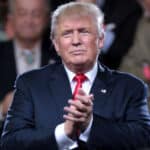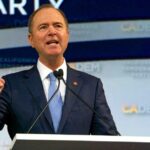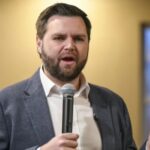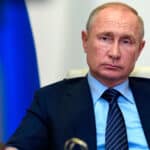


Russia’s nuclear ambitions are stirring again, with warnings of “colossal threats” from the West. Alexei Likhachev, head of Rosatom, has called for a major update to Moscow’s nuclear arsenal, citing the need to protect national sovereignty. His remarks come amid a frosty geopolitical climate that’s anything but reassuring.
Russia faces mounting challenges as the U.S. and its allies flex their strategic muscles, while the New START Treaty, the last thread of nuclear arms control between Moscow and Washington, nears its expiration in February 2026. Likhachev, without naming names, pointed to a volatile global stage where Russia’s nuclear capabilities must evolve to keep pace.
Back in May 2022, President Vladimir Putin met with Likhachev at the Novo-Ogaryovo residence, likely laying the groundwork for this renewed nuclear focus. Their discussion, though shrouded in Kremlin secrecy, underscored the strategic importance of Russia’s nuclear arsenal. Fast-forward to 2025, and the urgency hasn’t faded.
Just days before Likhachev’s comments, Putin sat down with U.S. President Donald Trump, their first meeting since Russia’s 2022 invasion of Ukraine. The talks, held on an unspecified date, produced no breakthroughs, and hopes for a Russia-Ukraine ceasefire fizzled as the week wore on. Diplomacy, it seems, is hitting a wall.
Trump’s recent push for a “Golden Dome” missile defense system, inspired by Israel’s Iron Dome and carrying a $175 billion price tag, has only heightened tensions. Russia, with its 4,400 nuclear warheads—1,500 strategically deployed—sees this as a direct challenge. The U.S., boasting 3,700 warheads with 1,400 deployed, isn’t backing down either.
Together, these two powers control 90% of the world’s 12,331 nuclear weapons, according to the Federation of American Scientists. That’s a sobering reality when trust is in short supply. Likhachev’s call for a stronger “nuclear shield” reflects Moscow’s belief that might must match might.
The New START Treaty, extended in 2021, is the only remaining nuclear arms control pact between the U.S. and Russia. But Moscow paused its participation in 2023, and Putin has made it clear that while Russia will stick to stockpile limits, U.S. inspections are off the table. This move signals a troubling erosion of transparency.
Likhachev’s rhetoric about a “nuclear shield” that’s also a “sword” is a not-so-subtle jab at Western policies. “The current geopolitical situation is a time of colossal threats to the existence of our country,” he declared. Such language, while bold, sidesteps the root causes of these so-called threats, leaving room for speculation.
Russia’s nuclear posturing isn’t new—its Yars intercontinental ballistic missile launchers rolled through Moscow’s Victory Day parade on May 9, 2024, a stark reminder of its firepower. Yet, Likhachev’s insistence that the nuclear arsenal “must only be improved” suggests a shift toward modernization over restraint. That’s a choice that could ripple globally.
With 12,331 nuclear weapons worldwide, the stakes couldn’t be higher. Russia and the U.S. dominate, but concerns about China’s growing nuclear ambitions add another layer of complexity. The International Atomic Energy Agency, silent on the matter, leaves us guessing about the broader implications.
Post-Cold War dreams of nuclear disarmament are fading fast. Strained U.S.-Russia relations, compounded by Moscow’s cozying up to Beijing, make cooperation a pipe dream. Likhachev’s warnings tap into a conservative fear: a world where strength, not diplomacy, dictates survival.
The “colossal threats” Likhachev speaks of are left vague, but they conveniently align with Russia’s narrative of Western aggression. His call to bolster the nuclear arsenal is less about defense and more about signaling resolve. It’s a classic power play, dressed up as patriotism.
For conservatives, Russia’s moves underscore the need for a robust U.S. defense strategy, like Trump’s Golden Dome. Hand-wringing over progressive calls for disarmament ignores the hard truth: a strong deterrent is non-negotiable when dealing with Moscow’s ambitions. Weakness invites chaos, and Russia knows it.
Yet, empathy for global stability demands a nod to restraint. Escalating a nuclear arms race benefits no one, least of all a world already on edge. The challenge lies in balancing strength with wisdom, a tightrope neither side seems eager to walk.
As the New START Treaty’s expiration looms, the clock is ticking. Russia’s nuclear saber-rattling, paired with vague threats and a stalled ceasefire, paints a grim picture. Conservatives rightly champion sovereignty, but the path forward requires clarity, not just bravado.



